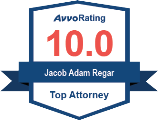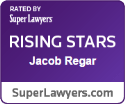Frequently Asked Questions
Get Legal Answers from an Encino, CA Personal Injury Attorney
1. Do I have a case?
If someone does something wrong to you and you suffer harm, you have the right to sue the responsible party in civil court. Here, we are talking about civil law, not criminal law. In civil court, the remedies you may be entitled to include financial compensation for your economic and noneconomic injuries.
Looking at an automobile accident as an example, if a negligent driver caused a car crash with a car that you were traveling in, and you were injured, you can sue the responsible party for your damages. Before you sue, the law says you can demand compensation for your losses. If the responsible party does not take responsibility – or if they do but they disagree with your valuation of your claim – you can file a lawsuit against them in civil court, as long as you do so within the statute of limitations.
It is preferable to consult a personal injury attorney to learn the full scope of your rights.
2. What is my personal injury case worth?
It's worth what it's worth. You can CALL me at any time to discuss your facts and I can give YOU a thorough case evaluation. The factors that impact case valuation are complex.
Factors include:
- proof that supports the wrongdoer's liability (and extent – if any – of your fault)
- proof of causation (how is the negligent or intentional act connected to your injuries and other damages?)
- economic harm (e.g., medical bills, lost earnings, property damage)
- your medical treatment (i.e., how soon you sought treatment, what treatment you received, whether you followed doctor instructions)
- plaintiff's credibility
- witnesses
- mitigation of damages (i.e., things that you did to help yourself heal and limit your damages)
- As you can tell, when you weigh each of the above factors as they apply to your facts, you see that every case is unique. That said, cases can be compared on a general level, but you can't predict the value of a particular case until each factor is known.
When you first get injured in an accident, you don't know how long you will treat for, and you don't know how much work you may miss in the future. You should speak to an attorney as soon after an accident as possible to learn how you can begin to protect yourself should you need to file a claim against the responsible party.
3. How do you value pain and suffering? And is the analysis the same for all negligence accidents?
These are very important questions. When you have been made to suffer from the life-changing effects of personal injuries, you are entitled to general damages. In California, the law holds pain and suffering includes subjective qualities like fear, shock, ordeal, impairment, embarrassment, nervousness, grief, and inconvenience.
Emotional distress is presumed when you are injured because of negligence. These are very difficult qualities to place a monetary value on, but the law makes no mistake about it – these forms of detriment require compensation. And pain and suffering damages are an available remedy for all personal injury cases.
There is a common myth that holds general damages should be three times the plaintiff's medical bills. Although that formula may bring about fair results in some cases, that would only be a coincidence. And most of the time that formula would be inadequate to fully compensate victims of auto accidents, motorcyclist accidents, or premises accidents for their pain and suffering and loss.
4. I found a website that shows me how to handle my own personal injury claim?
You should know, the author of that information is not held to any professional ethical standards. They owe you no duty of any kind. They obviously are not experienced in personal injury law if they would ever think it was safe or responsible to try to offer general tips to handle legal claims. These are your legal rights we're talking about. Often, you have only one shot to preserve them and maximize them
It can occur that the generalized, one-size-fits-all tips work at times. Most of the time if you handle your own personal injury claim, you will be getting pennies on the dollar. Do you really want to risk that, given the harm that you have suffered because of your accident-related injury? Do yourself a favor and do not speak to the defendant's insurer and consult with a personal injury attorney.
You may want to know that if you are unrepresented and handling your own insurance claim, there is NOTHING you can say that will get the insurance adjuster to offer you real value for your case. You can have the greatest position, you can be the most sincere and nicest person; but, they have a job to do. That job is to undervalue your case. They do this day-in and day-out and they are skilled negotiators. They are trained for their job. And their job future depends on how little they give you for your injuries and economic damages.
This is why you should always contact a personal injury lawyer like the San Fernando Valley Personal Injury Lawyer Jacob Regar. You will receive a FREE consultation and case evaluation.
5. If I get in a car accident, do I have to give my insurance company a statement?
Contact a personal injury attorney before you make a statement to your insurance company. I say this because if you later find out that the driver that hit you was uninsured and you have uninsured motorist coverage, you can bring a claim under the UM provision of your policy. Once you do that, your insurance company will oppose you and try to minimize your claim.
So, it's best if they only know the essential facts about the accident. And when you consult with an attorney prior to speaking with your insurance company, your attorney can help you frame your statement to reflect the truth, but in such a way that minimizes any risk of your statement being twisted around to negatively impact your case.
Words matter and it's amazing how fast your own insurance company will latch onto a slightly ambiguous statement, if they believe it gives them an opening to argue that you are in some way responsible for the accident, which in turn may reduce the value of your case.
This is what I tell people they can say in their statement to their own insurance company:
- Date/time of accident
- Vehicle you were in
- Vehicle that hit you
- Whether the other car had insurance
- Whether you were injured
- Whether you received medical treatment
- That you will be speaking with an attorney
- End conversation
(a) What if my adjuster wants me to explain how the accident happened?
Tell them you will be speaking with an attorney and you will not say anything further. This is your right.
6. How long does a personal injury case take to reach resolution?
This is probably one of the most common and important questions. The length of time for a case, from start to finish, depends on the type of injuries that you suffer. A personal injury case should not be settled until the lawyer and client have a very clear picture of the client's injuries. Once you settle your case, the case is over.
You cannot later come back and seek compensation from the defendant. So, to ensure that you are properly compensated for your losses, your body must have enough time to heal in order to know the full effects that your injuries have had on your life. Every injury reaches a stabilization point and at some point it will become clear if the injury will fully heal or whether it is permanent. Once we understand the complete picture of your damage model (economic and noneconomic damages) we can submit a demand to the responsible party.
7. Do you sue the defendant or do you sue their insurance company?
Great question! You sue the defendant. They are, after all, the responsible party. If they had active insurance at the time of your accident, their insurer will have a duty to defend them. Once you sue the defendant and serve them with a summons and complaint, the defendant turns those papers over to their insurer and their insurer will then provide them with a defense. If the defendant's conduct is covered by their insurance policy, the insurer has a duty to the defendant's to defend them and indemnify them up to their policy limits.
8. Is it okay to discuss my accident and my personal injury case on social media like Facebook, Twitter, etc.?
No, you should keep the details about your accident and injuries private. But, if you have already posted something about the events that caused your injury, do not delete that content. There are complex reasons for this. Basically, you may be asked by the defendant to produce this content down the road if a lawsuit is filed. If you posted content about your personal injuries caused by the accident and then you delete it, you may have a tough time retrieving the content from the social media providers and that can create some evidentiary issues for your case. Bottom line, don't post about your accident.
9. Who will pay for my vehicle's property damage bill?
If your vehicle gets damaged in an accident and another driver is at fault, the at-fault driver's insurance company (assuming they have active insurance at the time of the accident) will pay for your property damage. If the at-fault driver is uninsured at the time of the accident, and you have uninsured motorist property damage, that provision of your own insurance policy will cover the cost of the needed repairs. Additionally, you always have the option of using the collision coverage portion of your vehicle insurance policy.
10. Who determines whether my vehicle will be deemed a total loss if it sustained major damage in a collision?
The insurance company that is paying for the repairs of your vehicle will determine whether your car is considered "repairable" or a "total loss." Sometimes it may be the at-fault driver's insurer and sometimes it may be your own insurer. Sometimes both insurers will be willing settle the property damage portion of a vehicle collision claim. Each insurance company uses their own formula for reaching their decision. Some insurance companies deem a vehicle to be a total loss if the cost of repair exceeds the fair market value of the vehicle at the time of the collision.
Other insurers will total out a car if the cost of repairing the property damage exceeds some percentage of the vehicle's fair market value at the time of loss (e.g., 50% or 65%). Insurer's sometimes arbitrarily select the percentage that will save them the most money. For example, if the cost of repairing a car is $8,600 and the vehicle is worth $17,000, the insurer may select the 65% formula, and decide that the car is "repairable" because the cost of repair ($8,600) is less than 65% of fair market value at the time of loss ($17,000). Had the insurer elected to use the 50% formula to determine whether the vehicle is a total loss, the cost of repair ($8,600) would have exceeded 50% of the vehicle's value, which was $17,000 at the time of loss, and the insurer would have owed the vehicle owner for that amount.
11. Will I be reimbursed for my rental car charges while my vehicle is being repaired?
If you have a rental car reimbursement provision in your own insurance policy, then your insurer will reimburse you up to the daily limits that you have purchased from their company. Otherwise, the at-fault driver's insurer will reimburse your for reasonable rental car expenses while your car is being evaluated and repaired.
12. Do I need a lawyer to handle the property damage aspect of my collision claim?
Not necessarily. Sometimes the property damage portion of a collision claim is straightforward and the insurance companies do what is right. But, sometimes that is not the case and an accident attorney with experience negotiating with insurance adjusters can help ensure that all of your post-accident rights are protected. When I handle the property damage portion of my clients' claims, I negotiate every step of the way to make sure nothing is left on the table.
Contact Jacob Regar Law today to get your questions answered: (818) 588-0653.
Disclsaimer: The questions and answers provided above are general in nature. They do not deal with the specific facts of any case that the reader may have. The above questions and answers are not legal advice. They are not intended to advise someone on how to handle a legal matter. Do not rely on them.
The content provided above is an expression of opinion only. Jacob Regar Law makes no representation and provides no warranty on the accuracy of such content. Only rely on the legal advice of your attorney. Please understand that no attorney-client relationship is formed merely by reading the information anywhere on this website.
Further, because Jacob Regar Law invites you to contact him for a free consultation, it is an Advertisement. With that in mind, Jacob Regar Law is passionate about helping injured accident victims and is willing to take time to hear about your facts.



